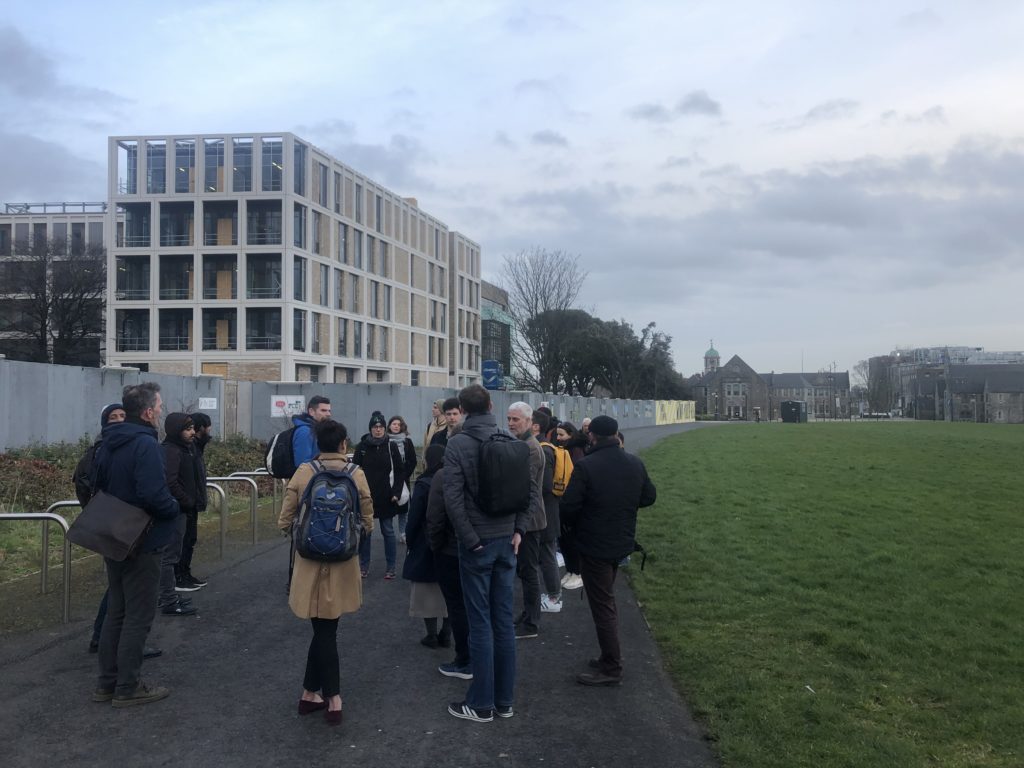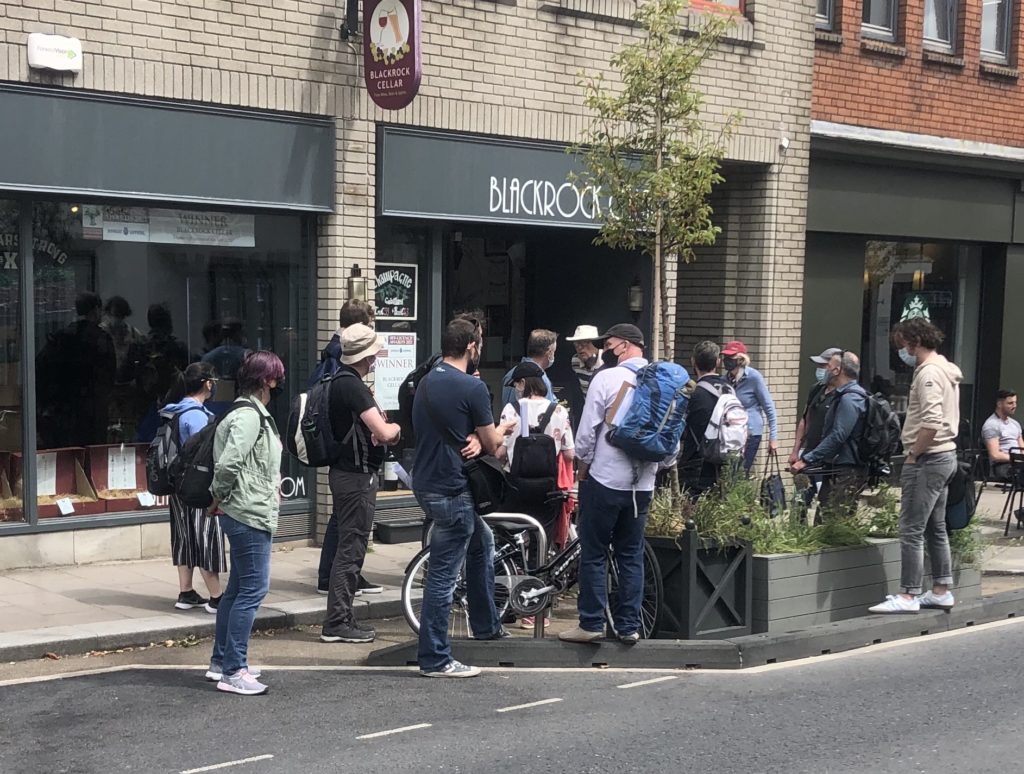Three years ago, I wrote an article describing how excited I was to be starting a Masters in TU Dublin. I thought it would be interesting to review my experience after finishing the course, in the hope that it might be useful to people who were thinking of applying. I’m told there might be one or two places remaining for the January 2023 intake if you are quick (apply here).
Classmates
I appreciate this is a variable factor but by far the best aspect of the course for me was working with my fellow students on the course. There was a fairly good mix of gender and age, and we were a mix of people working in the private sector, the public sector, and those of us from more diverse employment backgrounds who were coming from an activist background. Most modules contained quite a lot of group work and we quickly got to know each other well, with an active and sometimes raucous WhatsApp group discussing not only upcoming deadlines but general transport developments both in Ireland and further afield. I think we all learned a lot from each other and we’ve continued to meet semi-regularly since graduating.
Broad range of modules
The range of modules we studied was vast, ranging from the social science of behavioural change, to architecturally-related placemaking, to the sometimes challenging maths of transport modelling. It really is a well-rounded course and no matter what your academic background you will find some modules relatively familiar and others unlike anything you’ve studied before.
The importance of transport and mobility
During the course I was frequently reminded of how relevant our subject matter was to important and current issues in policy, which was a definite advantage for me as I was working in politics for most of my time on the course. In particular, challenges in climate, health and social equity. It felt like we were going to graduate with an awful lot of really useful tools to solve policy problems that many feel are relatively intractable.
Influential lecturers
Over the two years that I was studying on the course, at least 6 of my lecturers appeared in front of various Oireachtas committees: Lorraine D’Arcy, Dave O’Connor, Odran Reid, Suzanne Meade, Helen Murray O’Connor and Sarah Rock. I think this is evidence of the esteem that our lecturers were held by policymakers and it felt good that politicians were getting the same exposure to good practice as we were.
Dissertation
For many of us, the dissertation was the most challenging part of the Masters. We were all busy people with jobs and families and it was a challenge to fit in enough time for original research. I did struggle at times to keep going with my dissertation and I’m certainly grateful to Rose Anne for putting up with me as I got ever more grumpy towards the deadline, but I did submit on time, and I was fortunate enough to have a paper on my research accepted to the Irish Transport Research Network Conference (Public transport deprivation in County Limerick and the development of an effective rural public transport network – PDF), this paper was also covered on the front page of the Irish Examiner.
Summer School
Despite Covid restrictions we did get to have an in-person summer school: ours was hosted by Dún Laoghaire Rathdown County Council and it was fun to have our proposals to extend the famous Coastal Mobility Route assessed by Conor Geraghty and Robert Burns. We also had a guest input from one of the lead authors of DMURS.
Should you do this course?
In a word, yes! If you care about problems that matter and don’t mind having your brain slightly melted at their complexity, this is the course for you. It’s a course that’s fundamentally about people, and it is key to solving the singular challenge of our age: the climate crisis. I’m more than happy to chat to anyone considering applying for this course (contact details here) and it has certainly changed my outlook on life.


